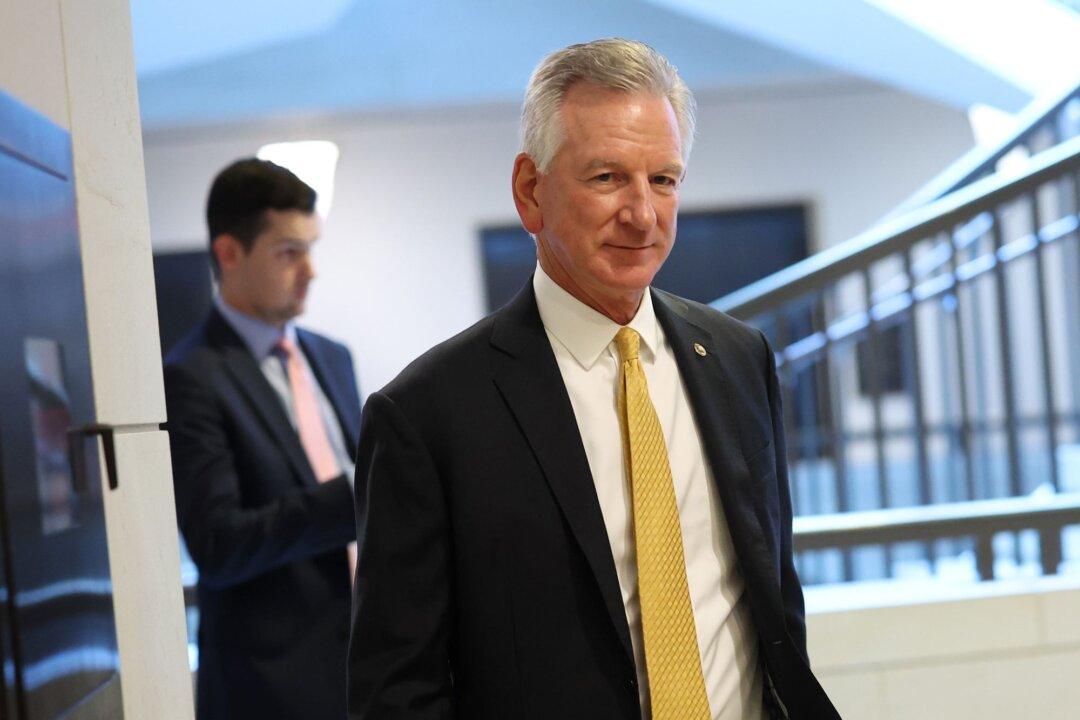Sen. Tommy Tuberville (R-Ala.) faced pressure from four of his fellow Republicans on the evening of Nov. 1 to relax his opposition to a military abortion-related travel policy in order to allow the Senate to confirm 61 military nominees.
For months, Mr. Tuberville has maintained a hold on the Senate confirmation process, preventing the body from using its unanimous consent rules to confirm multiple military promotions and nominations in a single vote. While the Alabama Republican’s hold prevents these batch votes, the Senate can still confirm individual military nominees through its normal cloture procedures, although this entails time for debating the individual nominees and makes for a lengthier confirmation process.





